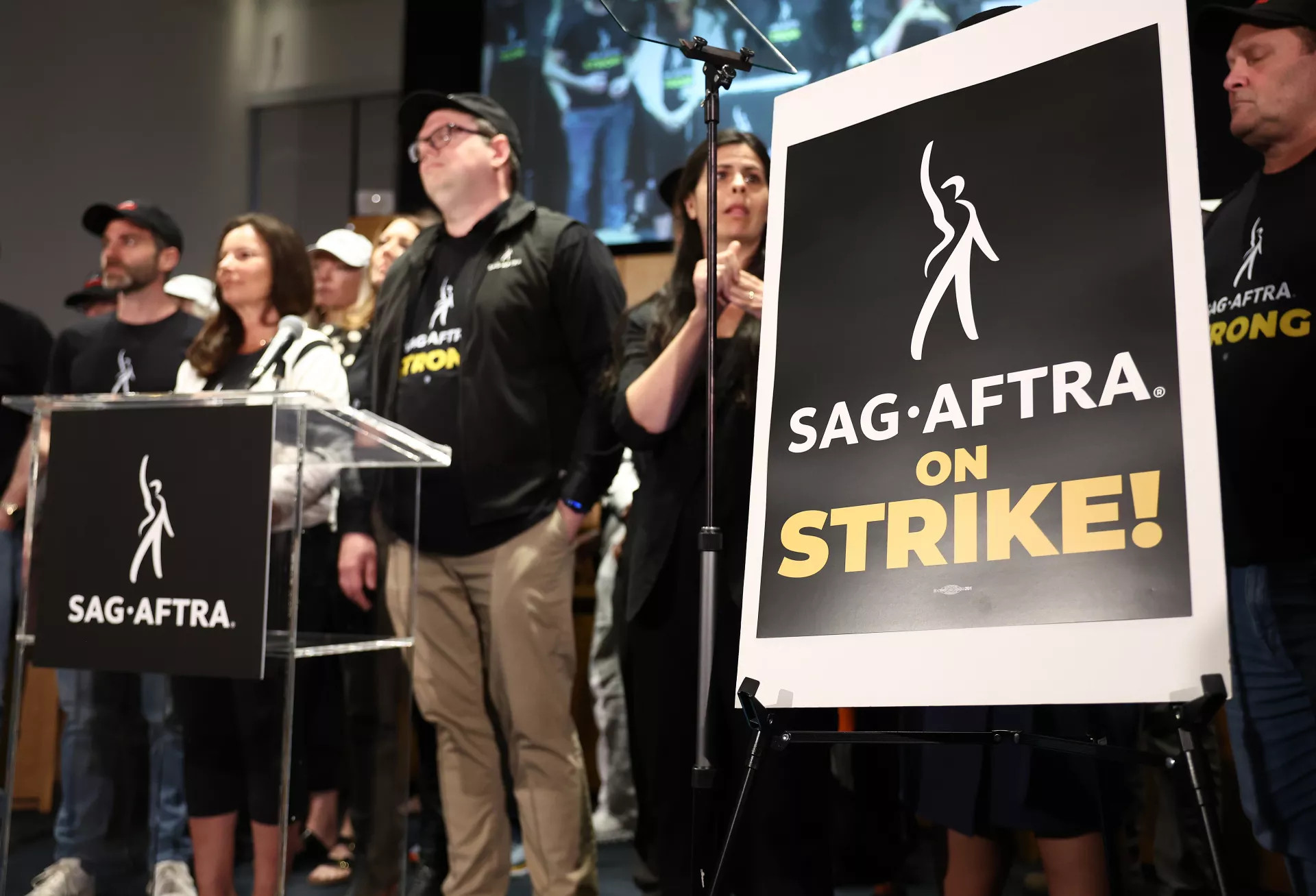
The professional video industry's #1 source for news, trends and product and tech information. Sign up below.
You are now subscribed
Your newsletter sign-up was successful
As expected, SAG-AFTRA, the largest actor’s union in Hollywood, voted Thursday to join the Writers Guild of America on the picket lines in a strike against film and TV production studios after talks to extend their contract with the Alliance of Motion Picture and Television Producers (AMPTP) beyond the June 30 deadline broke down earlier this week.
In a press conference on Thursday, union president Fran Drescher excoriated the Alliance of Motion Picture and Television Producers (AMPTP), telling them to “wake up and smell the coffee.”
“We are being victimized by a very greedy enterprise,” she said. “At some point you have to say ‘No, we’re not going to take this anymore. You people are crazy. What are you doing? Why are you doing this?’”
“If we don’t stand tall right now, we are all going to be in jeopardy," Drescher added. "You cannot change the business model as much as it has been changed and not expect the contract to change too. I cannot believe… how [the studios] plead poverty, that they are losing money left and right, when they give hundreds of millions to their CEOs. It is disgusting. Shame on them.”
At issue are concerns over the fact that while the explosion in streaming services over the past decade have led to an increase in programming (and opportunities), the policies that control the management and dispersion of royalties and the working conditions of writers have not caught up with the realities of the new media landscape. In addition, the threat from AI in supplementing or even replacing writers has been top of mind, especially since the rise of ChatGPT and similar generative AI platforms.
That last issue was highlighted at yesterday’s press conference when Duncan Crabtree-Ireland, chief negotiator for SAG-AFTRA, said that talks broke down with AMPTP after the organization revealed what AMPTP described as a “groundbreaking” proposal to use AI to scan images of secondary performers so they could control the rights of their digital avatars in perpetuity without future remuneration.
“This ‘groundbreaking’ AI proposal that they gave us yesterday, they proposed that our background performers should be able to be scanned, get one day’s pay, and their companies should own that scan, their image, their likeness and should be able to use it for the rest of eternity on any project they want, with no consent and no compensation,” Crabtree-Ireland said. “So if you think that’s a groundbreaking proposal, I suggest you think again.”
The professional video industry's #1 source for news, trends and product and tech information. Sign up below.
It also doesn't help when the studios give tone-deaf responses, highlighted by an interview with Disney head Bob Iger on CNBC Thursday morning,
The strike is “very disturbing to me," he said. "We’ve talked about disruptive forces on this business and all the challenges we’re facing, the recovery from Covid, which is ongoing, it’s not completely back. This is the worst time in the world to add to that disruption.”
SAGA-AFTRA’s strike, which started at 12:01 AM Friday, along with WGA’s walkout against AMPTP two months ago, effectively shuts down all TV and film production in the U.S. and could end up of costing the industry an estimated $8 billion.
The effects will be felt worldwide, according to analyst Fred Black from Ampere Analysis, who told TV Tech sister brand TVBEurope, “The strike impacts everybody in the industry,” he says. “If you’re a camera operator, you need an actor and someone to have written their lines.
“There’s going to be a huge amount of strife for other groups [of workers] as well,” he added. “With the writers’ strike, we’ve seen some of the other workers express their support and refuse to go to work in solidarity with a writer, even though they’re not part of that union. But it’ll be a question about how far they’re willing to see that pushed.”
“We’re going to see a global effect that’s going to it’s going to hurt people all over the world,” he concluded.
Tom has covered the broadcast technology market for the past 25 years, including three years handling member communications for the National Association of Broadcasters followed by a year as editor of Video Technology News and DTV Business executive newsletters for Phillips Publishing. In 1999 he launched digitalbroadcasting.com for internet B2B portal Verticalnet. He is also a charter member of the CTA's Academy of Digital TV Pioneers. Since 2001, he has been editor-in-chief of TV Tech (www.tvtech.com), the leading source of news and information on broadcast and related media technology and is a frequent contributor and moderator to the brand’s Tech Leadership events.

